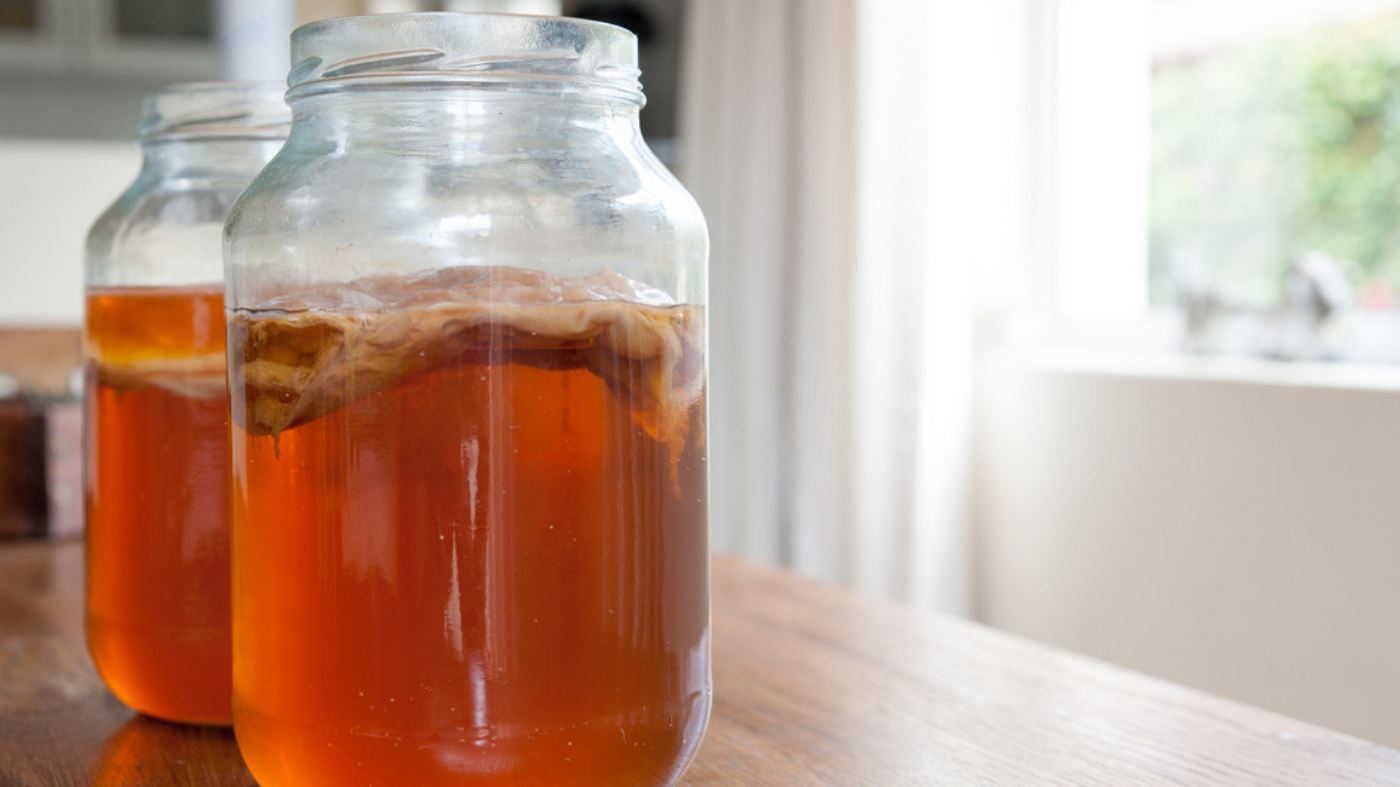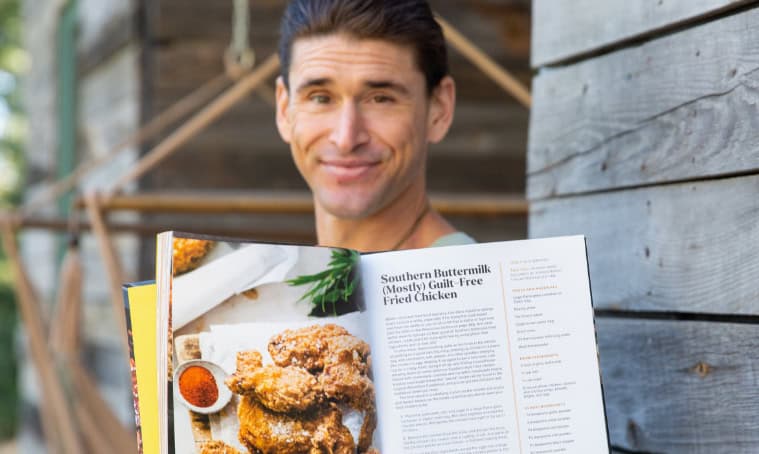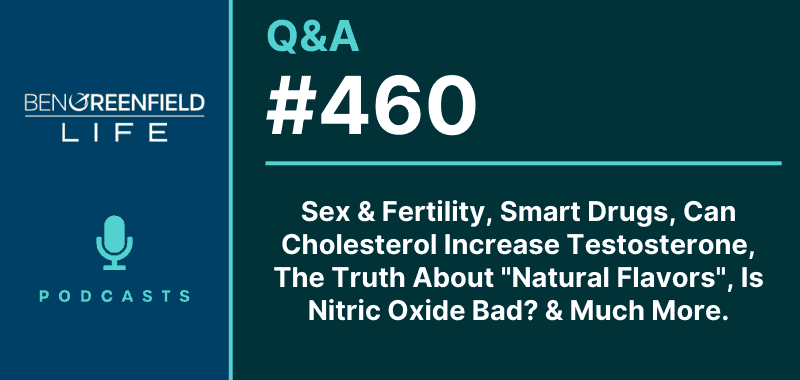January 10, 2015
Click here for the full written transcript of this podcast episode.
I drink Kombucha almost every day. My wife usually ferments a batch with a home Kombucha fermenting kit, then adds things like blueberries and ginger to it. But there are a lot of myths and mistruths out there when it comes to Kombucha.
Call it “Kombucha confusion” if you will…
Is Kombucha alcoholic?
Is Kombucha dangerous to make yourself, and if not, how do you do it?
Does Kombucha cause Candida or bacterial overgrowth to occur in your gut?
Are all brands of Kombucha at the grocery store created equal?
How should you feel after you drink Kombucha?
We're going to answer all these questions and more on today's special podcast interview with The Kombucha Mamma herself: Hannah Crum.
Hannah is the founder of Kombucha Kamp, the most visited website in the world for Kombucha information, recipes and advice, and her mission is to “heal the world, one gut at a time.” Hannah is also an industry journalist & Master Brewer, directly mentoring thousands of new and experienced Kombucha brewers and providing consultation services for Kombucha start-ups since 2007.
She co-founded Kombucha Brewers International, a non-profit trade association dedicated to promoting bottled Kombucha around the world, and her Kombucha instructional video series with E-How/Expert Village has racked up over 1 million views. Hannah is also a leader and featured speaker in the Southern California Real Food movement, using the “Kombucha Lifestyle” as an introduction to other fermented foods, gut health, the human microbiome, “bacteriosapiens” and more.
Hannah ships freshly grown, full-size Kombucha starter cultures to more than 10,000 people worldwide and offers kits and Continuous Brew Packages, the ultimate in convenient homebrewed Kombucha, via her webstore. She also has a Free “Do-It-Yourself” Kombucha Guide with brewing, bottling & flavoring tips you can click here to grab.
During our discussion, you'll learn what exactly Kombucha is, how to make Kombucha, what kind of Kombucha is best, which Kombucha to avoid, when you should and shouldn't drink Kombucha and much more.
Click here to get Kombucha or a Kombucha Starter Kit on Amazon, and leave your questions, comments and feedback about Kombucha below!















I was doing some research into the human gut microbiome and as your article discusses the is a lot of confusion and controversy I can’t seem to get to the bottom of Ben.
I’m confused whether kombucha contains any worthwhile probiotics and if the acidic state and potential histamine reaction is detrimentally outweighing the potential positives?
I’m also concerned after reading Wikipedia and pages like this – https://www.ombucha.co.uk/is-drinking-kombucha-ha… that there are inconsistencies in labelling of sugars and alcohol levels.
After attempting to brew my own kombucha I find it to definitely become more alcoholic over time, as well as so carbonated it is explosive in some batches!
Are the microbiome benefits with further trial and error, as kombucha seems on one hand to be really benefiting me when I get a good batch in a run…!
Here are a couple good resources to check out: http://bit.ly/2LZWuGb and http://bit.ly/2LWrM0U
Ben are there any peer reviewed studies done on Kombucha that prove it’s efficiency?
Here's a few:
Teoh AL1, Heard G, Cox J Yeast ecology of Kombucha fermentation . Int J Food Microbiol. (2004)
Jayabalan R, Marimuthu S, Swaminathan K Changes in content of organic acids and tea polyphenols during kombucha tea fermentation . Food Chem. (2007)
Liu C-H, et al The isolation and identification of microbes from a fermented tea beverage, Haipao, and their interactions during Haipao fermentation . Food Microbiol. (1996)
Murugesan GS1, et al Hepatoprotective and curative properties of Kombucha tea against carbon tetrachloride-induced toxicity . J Microbiol Biotechnol. (2009)
Pauline T1, et al Studies on toxicity, anti-stress and hepato-protective properties of Kombucha tea . Biomed Environ Sci. (2001)
Wang K1, et al Determination of D-saccharic acid-1,4-lactone from brewed kombucha broth by high-performance capillary electrophoresis . J Chromatogr B Analyt Technol Biomed Life Sci. (2010)
Petrović SE1, et al Biosynthesis of glucuronic acid by means of tea fungus . Nahrung. (2000)
Blanc PJ Characterization of the tea fungus metabolites . Biotechnol Lett. (1996)
Mayser P1, et al The yeast spectrum of the 'tea fungus Kombucha' . Mycoses. (1995)
LEVVY GA The preparation and properties of beta-glucuronidase. IV. Inhibition by sugar acids and their lactones . Biochem J. (1952)
Sperker B1, et al Regulation of human beta-glucuronidase by A23187 and thapsigargin in the hepatoma cell line HepG2 . Mol Pharmacol. (2001)
Kim DH1, Jin YH Intestinal bacterial beta-glucuronidase activity of patients with colon cancer . Arch Pharm Res. (2001)
Kim DH1, et al Purification and characterization of beta-glucuronidase from Escherichia coli HGU-3, a human intestinal bacterium . Biol Pharm Bull. (1995)
Oleson L1, Court MH Effect of the beta-glucuronidase inhibitor saccharolactone on glucuronidation by human tissue microsomes and recombinant UDP-glucuronosyltransferases . J Pharm Pharmacol. (2008)
Cavusoglu K, Guler P Protective effect of kombucha mushroom (KM) tea on chromosomal aberrations induced by gamma radiation in human peripheral lymphocytes in-vitro . J Environ Biol. (2010)
Wang Y1, et al Hepatoprotective effects of kombucha tea: identification of functional strains and quantification of functional components . J Sci Food Agric. (2014)
Bhattacharya S1, Gachhui R, Sil PC Hepatoprotective properties of kombucha tea against TBHP-induced oxidative stress via suppression of mitochondria dependent apoptosis . Pathophysiology. (2011)
Bhattacharya S1, et al Prophylactic role of D-Saccharic acid-1,4-lactone in tertiary butyl hydroperoxide induced cytotoxicity and cell death of murine hepatocytes via mitochondria-dependent pathways . J Biochem Mol Toxicol. (2011)
This was a very informative episode. I've heard you mention Kombucha alot, both on your podcast and on enduranceplanet. I still miss out of the secret ingredients. The Kombucha culture that you mentioned. What is that. Is there another process to make that? Do I buy it? Where can I get it – what ever it is?
This is the stuff here http://www.kombuchakamp.com/kombucha-cultures
Is there going to be a transcript to this podcast?
I am afraid not. We only do transcripts of the numbered Q&A podcasts. Transcriptions are expensive!
I have been making the tea for 2 years and love it, my husband is worried that it is acidic and will leach minerals from my bones. I drink about a quart a day, is he right or wrong? Thanks
Kombucha is not the same as soda pop. So while each of those products is very acidic – soda removes nutrients from the body (due to the addition of phosphoric acid) where as the healthy acids created by Kombucha add nutrition to the body.
We consider soda pop to be a SIMULACRUM – that is a product designed to imitate one that is healthy yet delivers none of the nutritional benefit. Kombucha, kefir, kvass – these are nature's sodas and the natural carbonation is formed by yeast – so bubbles are one of the instinctual signs we look for when seeking nutrient dense foods.
Trust YOUR gut!
I brew 1 1/2 gallons at a time,
When the bucha is ready (4-5 days), I add fruit juice to 3- 1/2 gallon glass bottles, fill with booch, cap and let them sit for two days on the counter, then refrigerate.
Twice now, one of the bottles blew up after one day.
Bad bottles or wrong technique?
Sounds like you may be adding too much fruit juice. Typically, 10% is more than enough to get the flavor into the brew. Too much and you may be creating Kombucha bombs. As the liquid is held under pressure, if an excess amt of carbonation builds up, that's when you have an explosion.
Here's a great article about carbonation techniques and tips —> http://www.kombuchakamp.com/2011/01/kombucha-carb…
Oh my…
Hahaha, you’re right! I’ve been adding waay too much juice.
Thank you
I know several recovering alcoholics who are afraid to drink kombucha (just as they refuse to take tinctures that are prepared in alcohol) – What can be said to them?
Obviously, this can be a complicated issue for some people and Kombucha Kamp is not in a position to offer medical or therapeutic advice of any kind. A slight amount of alcohol is a natural by-product of the fermentation process, the exact amount of which varies based on too many factors to account for. If one consumes soy sauce, coca cola or even unpasteurized fruit juice, they are consuming alcohol in similar trace amounts to properly fermented Kombucha, which is non-inebriating and does the exact opposite of what "hard liquor" does in that it detoxifies the liver rather than toxify it. A slight buzz feeling sometimes reported after drinking Kombucha is similar to the buzz feeling many experience after a B-Vitamin shot.
Some who face this challenge have said in our Facebook group that Kombucha helped reduce their cravings or had no affect on them. Others have not felt comfortable consuming a beverage with any alcohol content, even only .2 – .8%. The choice is a personal one.
Here is an interesting article that may identify why consuming Kombucha may curb alcohol cravings –> http://sciencenordic.com/alcoholism-linked-lack-i…
I tried to make my own kombucha but when it came time to check on it, mold was on the top. don't know what I did wrong.
Usually what is mistaken for mold is normal but strange looking SCOBY or yeast growth. Mold on Kombucha looks much like mold on bread or other food: it is always dry and fuzzy and sitting on top of the culture, usually in circles and colored white, black or green. Brown yeast strands can float in the liquid or embed in the culture, causing dark spots of SCOBY that may look unusual, but unless these spots are dry and fuzzy, they are unlikely to be a problem.
Cold = mold. Not having enough starter liquid or strong enough starter can also lead to mold. Here is a blog post about it –> http://www.kombuchakamp.com/2011/01/kombucha-mold…
Ben….great podcast, very informative. Hannah really knows her stuff and laid it out in an easy to understand way. I think that I will now take the leap and try to make my own Kombucha.
I buy Kumbucha pre-made from the stores. Am I still getting the same benefits as if I made it myself?
The biggest thing you need to look out for in the store bought stuff is added sugar. That's the major reason why we make our own.